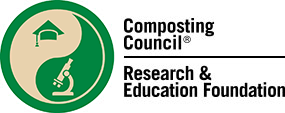|
The European Commission has adopted the revised BAT conclusions for waste treatment after the positive vote of the representatives of the EU Member States in the Industrial Emissions Directive (IED) Article 75 Committee. The review's BAT conclusions were published on 17 August in the Official Journal of the EU. The BAT conclusions provide national authorities with the technical basis for setting permit conditions for installations.
While the main aim of these BAT conclusions is to reduce emissions from different waste treatments, other environmental issues – such as energy efficiency, resource efficiency (water consumption, reuse and recovery of materials), prevention of accidents, noise and odour, management of residues – are also covered.
The document contains 53 individual BAT conclusions. Of these, 24 apply to the sector as a whole and 29 apply to the most common waste treatments, including mechanical, biological and physico-chemical treatments and treatment of water-based liquid waste. They also apply to temporary waste storage and independent waste water treatment plants whose main share of treated effluent originates in waste treatment installations.:
BAT-associated emission levels
The BAT conclusions include BAT-associated emission levels (BAT-AELs) which have the potential, through their translation into emission limits, to drive a sizeable reduction in emissions from the waste treatment sector. They include for the first time at EU level BAT-AELs for emissions to water and to air from mechanical treatments of waste (shredders) and from aerobic treatment of waste. BAT-AELs are set for total organic carbon, chemical oxygen demand, total suspended solids, hydrocarbon oil index, total nitrogen, total phosphorus, phenol index, free cyanide, absorbable organically bound halogens and metals and metalloids (e.g. arsenic, cadmium, chromium, copper, lead, nickel, mercury, zinc) in the final effluent for discharges to a receiving water body and to a sewage system.
The existing waste treatment installations (i.e. first permitted before the publication of the BAT conclusions) have four years to comply with the new standards. New installations (i.e. first permitted after the publication of the BAT conclusions) need to comply immediately with the new requirements.
The drafting of the BAT conclusions has been led by the European Commission's Joint Research Centre (JRC) through its European Integrated Pollution Prevention and Control Bureau (EIPPCB) and drawn up with the involvement of experts from industry, EU public authorities, environmental NGOs and other services of the European Commission. The European Compost Network has followed up and chaired the sub-technical working group on biological treatment in this process.
Please find the press release from the European Commission here.
Exclusively for ECN members we have summarised the outcome of the BAT conclusions in a short presentation. This document is available in the internal part of the ECN website (/Task Groups/Area European Policy/TG BREF).

Internationational Compost Awareness Week (ICAW)
Poster contest: 'Cool the Climate - Compost'
The Composting Council Research & Education Foundation invites everyone to get involved in ICAW 2019.They are looking for anyone interested in participating in our 17th Annual Poster Contest. The winning poster will be used to promote International Compost Awareness Week, May 5 -11, 2019. Please save the date!
The contest runs from September 1 until November 5, 2018 and is open to anyone, ages 10 and up, who wishes to share their artistic creativity to promote this year’s theme. The winning poster will serve as the promotional piece to encourage people across the country and worldwide to participate in ICAW, plus the winner receives a $500 prize too.
We invite municipal, facility or state agency representatives, industry professionals, students, youth groups, commercial composters, green industry businesses, gardeners, environmentalists, designers Everyone to join in the fun!.
More information on the ICAW Poster Contest is available here.


Announcement
6 -7 November 2018
11. Bad Hersfelder Biomasseforum
Composts and digestate products from organic and green material are high-quality fertilizers and soil improvers. They close the natural material cycle and are thus a symbol of a sustainable waste and resource economy.
There will be an interesting programme dealing with the lastest developments in this sector in Germany and in the EU. The following topics will be highlighted:
- German fertilizer regulation
- Marketing for compost products
- Quality of biowaste and compost
- Biowaste in the European context
In addition, new facilities and new utilization technologies will be presented, as well as developments in Germany and Europe. There is also plenty of room for discussion and conversation, not forgetting the traditional "Social Evening" on the first day of the event.
Further information on the programme and registration can be accessed here.
This event is in German language.
|